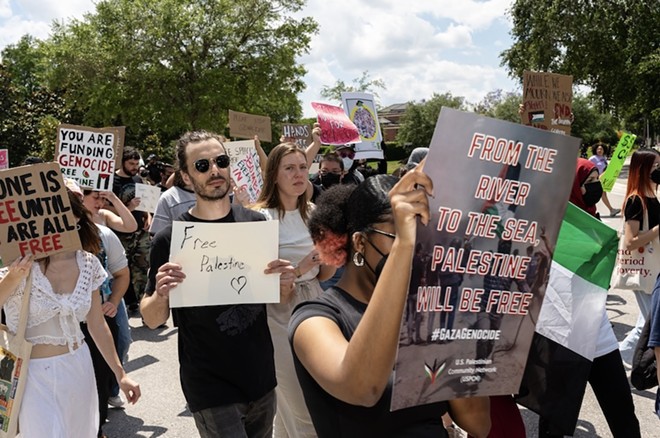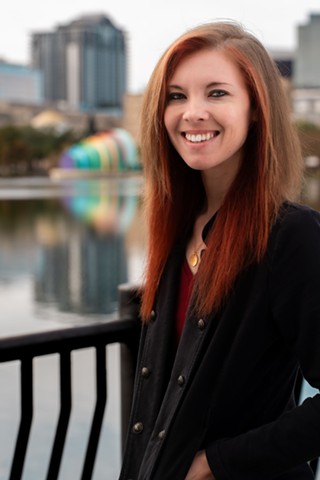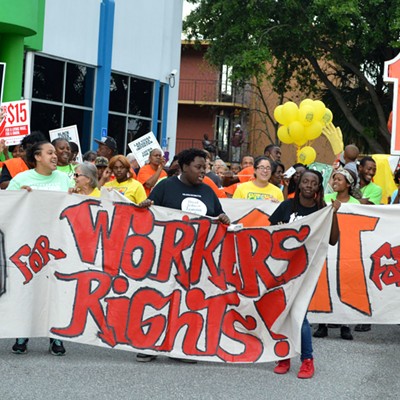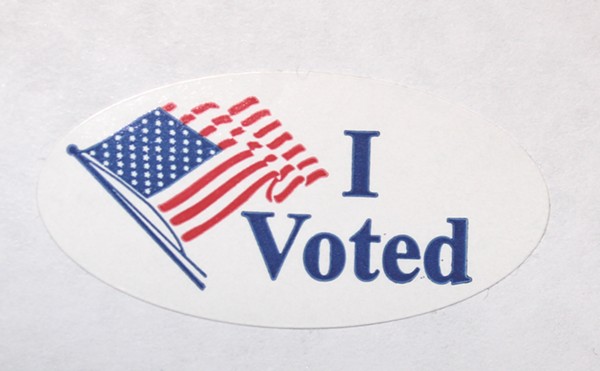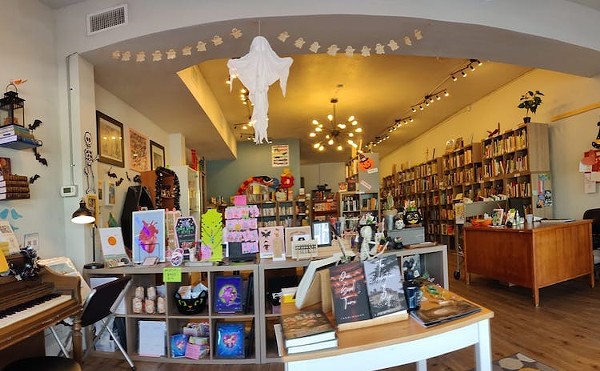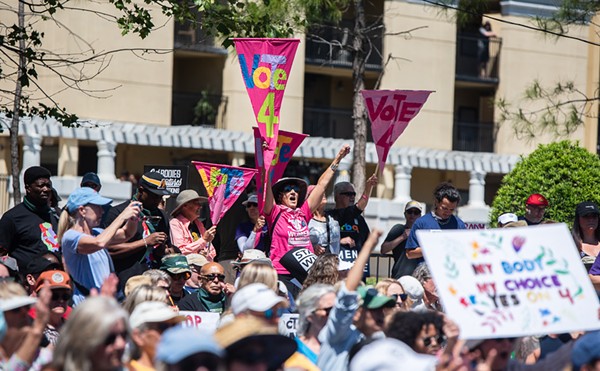The University of Central Florida’s board of trustees last week, joining other colleges and universities across the country, adopted changes to school policies that aim to restrict protest activity on campus.
Changes adopted Friday include language prohibiting people on-campus from “restricting the movement of others” and from wearing items such as a mask or hood in order to “intimidate” someone or otherwise conceal their identity “for the purposes of evading or escaping discovery, recognition, or identification in connection with or during the commission of a violation of law, regulation, or policy.”
In addition, the Orlando-based public university now also prohibits people from refusing to provide identification when requested by a university official or law enforcement, and prohibits affixing or attaching displays (such as “signs, banners, posters, or flyers”) to university property without the university’s prior authorization.
Youndy Cook, general counsel for UCF — the state’s largest university by enrollment — told the board’s six-member Governance Committee that they believe these rules “will help clarify expectations and practices, while upholding our commitment to free expression and maintaining many ways for students and others to express themselves.”
Pursuant to state law, all “commonly available outdoor areas” of campus are available for expressive activities, Cook continued. “That’s expressive activities by students, by employees or by visitors to campus. What we're trying to do now is be very clear on certain topics,” she explained.
The rule on “displays,” specifically, “is addressing an ongoing — or, an issue that we were experiencing last academic year with flyers being attached inappropriately to buildings, benches, trees, posts, chairs, me,” she quipped to laughter, “You know, whatever they could find that stayed still enough.”
These changes build on a university ban on encampments enacted this summer and a state-wide crackdown on anti-Israel bias in university courses. All notably follow a number of demonstrations organized by students in protest of Israeli force against Palestinians in the Middle East amid the ongoing Israel-Hamas War.
Since Oct. 7, 2023, more than 40,000 Palestinians have been killed by Israeli forces in Gaza, following an initial attack by the militant group Hamas on Israel that killed about 1,200. Despite criticism over Israel’s brutal force in Gaza, killing tens of thousands of women, children and civilians in addition to combatants, the Biden administration has approved billions of taxpayer dollars in military aid to Israel, funding what human rights experts have described as genocide. Universities, including UCF, have also been criticized for ties to weapons manufacturers and defense companies like Lockheed Martin that do business with Israel.
When students first began organizing peaceful pro-Palestine protests and encampments on Florida university and college campuses nearly one year ago, university leadership responded with force. UCF saw few altercations between protesters and campus cops (beyond intimidation tactics).
But, as the war and protests continued on into 2024, students at other universities — like the University of South Florida and University of Florida — faced more violent force from law enforcement. Students were tear-gassed, some arrested, and threatened with academic and legal repercussions as a result. State legislators earlier this year, meanwhile, attacked two Democrats in the Florida House who essentially just sought to symbolically condemn acts of violence on both sides of the Israel-Hamas dispute.
Although the language of UCF’s new changes don’t directly reference Palestine or campus protests in support of Palestinians, some students suspect they’re linked.
Koulson Fry, a UCF student, told Orlando Weekly in an email they worry the new rules are targeted and could be seen as an attempt “to silence critical voices on politically sensitive issues, preventing certain groups from expressing dissent.” They also worry that the new security rule that prohibits people from wearing items that could conceal their identity, such as masks, “excludes immunocompromised students who rely on masks for health reasons from participating in peaceful protests.”
They also have concern requiring students to reveal their identities to law enforcement “fosters fear of retaliation or bias, discouraging participation in protests and stifling free speech on campus.” Under the changes approved by the UCF board, such requests by law enforcement or university officials must be made (and adhered to) by those “acting within the scope of their job duties or by a law enforcement officer acting in a law enforcement capacity.”
As the New York Times reports, it’s not just UCF or even universities in Florida that are coming up with new rules perceived as an attempt to quell protest activity and free speech on campuses. Some universities have adopted new rules limiting "expressive activity" to certain times of the day (which UCF also has in place), while others have strictly banned encampments on campus property, restricted where protest activity can take place, or have updated anti-harrassment policies equating anti-Zionism with antisemitism.
Fry said they were further frustrated by the fact that the UCF board held their public comment period for the agenda item two hours earlier than students had prepared for. While the meeting was scheduled to begin at 4 p.m., public comment began earlier, “with no prior notice,” according to Fry. “This caused all but one student to be unable to give their opinions,” they said. “We view this as further stifling our freedom of speech and our right to make our opinions known.”
Courtney Gilmartin, UCF assistant vice president for Strategic Initiatives and Communications, told the Orlando Sentinel that public comment began earlier because other committee meetings had concluded earlier than expected. She also said they sent an email to those who had signed up for public comment to let them know about the changes.
Beyond university campuses, pro-Palestinian activists in the Orlando area have continued organizing demonstrations and speaking out against violence in Gaza, as the death toll rises and broader devastation affecting the region worsens.
As the one-year mark of the Israel-Hamas War nears, a group of pro-Palestinian activists in Orlando this week, organized with the Florida Palestine Network, officially launched what they have described as an Orlando-Palestine Week of Action. The group plans to hold a teach-in event Wednesday night, unveil a Palestinian Art Build Installation on Friday, according to a news release, and organize a protest on Saturday at an as-of-yet unspecified location.
Follow us: Apple News | Google News | NewsBreak | Reddit | Instagram | Facebook | Twitter | or sign up for our RSS Feed

